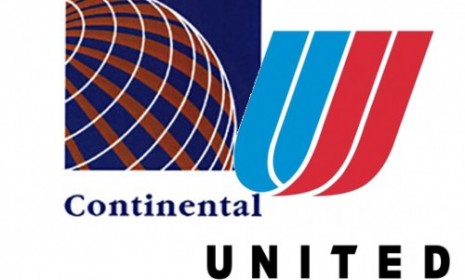The United/Continental merger: What it means for fliers
United and Continental airlines are merging to form the world's largest airline. Will this make traveling easier — or just more expensive?

A free daily email with the biggest news stories of the day – and the best features from TheWeek.com
You are now subscribed
Your newsletter sign-up was successful
In a move that has shaken up the air travel industry, the boards of United and Continental Airlines agreed on Sunday to merge their companies into one. If approved by shareholders and antitrust regulators, the $3 billion deal would create the world's largest airline (to be called United) and potentially allow for significant cost savings. But what will it mean for travelers? (Watch an AFP report about the airlines' merger)
Get ready for higher fares: Competition is a key factor in keeping ticket prices down, says FareCompare.com CEO Rick Seaney, as quoted by ABC News. So, by folding together two former rivals, this merger "is likely to send airfares skyward." And with bookings gaining strength, fares were already set to rise — "the question is how much"?
"United-Continental merger could 'send airfares skyward'"
The Week
Escape your echo chamber. Get the facts behind the news, plus analysis from multiple perspectives.

Sign up for The Week's Free Newsletters
From our morning news briefing to a weekly Good News Newsletter, get the best of The Week delivered directly to your inbox.
From our morning news briefing to a weekly Good News Newsletter, get the best of The Week delivered directly to your inbox.
Fliers will have more limited choices: United and Continental have 13 overlapping routes, say Jad Mouawad and Michael J. de la Merced in The New York Times, and they'll be able to eliminate some flights on those. While that will help the new United's bottom line, it will give "travelers fewer options."
"United and Continental announce merger"
There are some upsides as well: Sure, fares will jump in the first year, says Sean O'Neill at Budget Travel, "especially on routes that serve smaller cities." But eventually prices will fall again as "low-cost carriers like Southwest will swoop in and serve these markets." And while planes may get more crowded as flights are eliminated, connections will be easier when the old United and Continental routes are run by the same company.
"United and Continental may merge. But should they?"
A free daily email with the biggest news stories of the day – and the best features from TheWeek.com
-
 Film reviews: ‘Send Help’ and ‘Private Life’
Film reviews: ‘Send Help’ and ‘Private Life’Feature An office doormat is stranded alone with her awful boss and a frazzled therapist turns amateur murder investigator
-
 Movies to watch in February
Movies to watch in Februarythe week recommends Time travelers, multiverse hoppers and an Iraqi parable highlight this month’s offerings during the depths of winter
-
 ICE’s facial scanning is the tip of the surveillance iceberg
ICE’s facial scanning is the tip of the surveillance icebergIN THE SPOTLIGHT Federal troops are increasingly turning to high-tech tracking tools that push the boundaries of personal privacy